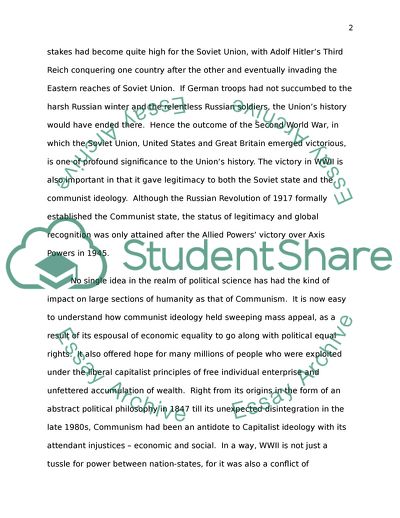Cite this document
(In What Way was WWII the Single Most Consequential Event in Soviet Assignment Example | Topics and Well Written Essays - 1500 words, n.d.)
In What Way was WWII the Single Most Consequential Event in Soviet Assignment Example | Topics and Well Written Essays - 1500 words. https://studentshare.org/history/1737897-in-what-was-was-wwii-the-single-most-consequential-event-in-soviet-history-between-1921-1985
In What Way was WWII the Single Most Consequential Event in Soviet Assignment Example | Topics and Well Written Essays - 1500 words. https://studentshare.org/history/1737897-in-what-was-was-wwii-the-single-most-consequential-event-in-soviet-history-between-1921-1985
(In What Way Was WWII the Single Most Consequential Event in Soviet Assignment Example | Topics and Well Written Essays - 1500 Words)
In What Way Was WWII the Single Most Consequential Event in Soviet Assignment Example | Topics and Well Written Essays - 1500 Words. https://studentshare.org/history/1737897-in-what-was-was-wwii-the-single-most-consequential-event-in-soviet-history-between-1921-1985.
In What Way Was WWII the Single Most Consequential Event in Soviet Assignment Example | Topics and Well Written Essays - 1500 Words. https://studentshare.org/history/1737897-in-what-was-was-wwii-the-single-most-consequential-event-in-soviet-history-between-1921-1985.
“In What Way Was WWII the Single Most Consequential Event in Soviet Assignment Example | Topics and Well Written Essays - 1500 Words”. https://studentshare.org/history/1737897-in-what-was-was-wwii-the-single-most-consequential-event-in-soviet-history-between-1921-1985.


